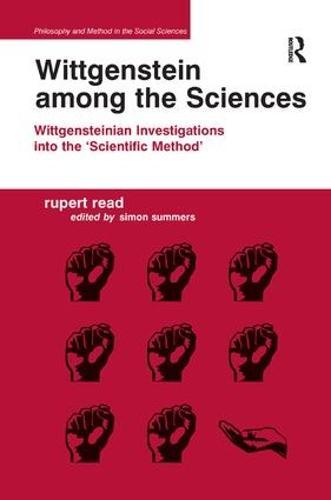Full Product Details
Author: Rupert Read ,
Edited by Simon Summers ,
Dr. Phil Hutchinson
Publisher: Taylor & Francis Ltd
Imprint: Routledge
Edition: New edition
Dimensions:
Width: 15.60cm
, Height: 1.60cm
, Length: 23.40cm
Weight: 0.453kg
ISBN: 9781409430544
ISBN 10: 1409430545
Pages: 248
Publication Date: 28 April 2012
Audience:
College/higher education
,
Undergraduate
,
Postgraduate, Research & Scholarly
Format: Hardback
Publisher's Status: Active
Availability: In Print

This item will be ordered in for you from one of our suppliers. Upon receipt, we will promptly dispatch it out to you. For in store availability, please contact us.
Reviews
'Read challenges the reader to consider what science is. He offers an insightful account of Kuhn, successfully calling the traditional conception of Kuhn as a relativist and an idealist into question. Read's book displays great interpretative skill, showing that Kuhn was a philosophically sophisticated and self-aware writer. This highly original book will prove to be an eye-opener for many.' Jouni-Matti Kuukkanen, Leiden University, The Netherlands 'Read takes the account of Kuhn's account of science developed in the first part of the book and then applies that to a set of issues in the human sciences pioneered by philosophers like Schutz and Winch. Read's thinking on economics, psychology and more is distinctive, challenging and worthy of note. He incites the rethinking of both the tradition on which he draws and the issues that he uses it to address.' Wes Sharrock, University of Manchester, UK
"'Read challenges the reader to consider what science is. He offers an insightful account of Kuhn, successfully calling the traditional conception of Kuhn as a relativist and an idealist into question. Read's book displays great interpretative skill, showing that Kuhn was a philosophically sophisticated and self-aware writer. This highly original book will prove to be an eye-opener for many.' Jouni-Matti Kuukkanen, Leiden University, The Netherlands 'Read takes the account of Kuhn's account of science developed in the first part of the book and then applies that to a set of issues in the ""human sciences"" pioneered by philosophers like Schutz and Winch. Read's thinking on economics, psychology and more is distinctive, challenging and worthy of note. He incites the rethinking of both the tradition on which he draws and the issues that he uses it to address.' Wes Sharrock, University of Manchester, UK"
'Read challenges the reader to consider what science is. He offers an insightful account of Kuhn, successfully calling the traditional conception of Kuhn as a relativist and an idealist into question. Read's book displays great interpretative skill, showing that Kuhn was a philosophically sophisticated and self-aware writer. This highly original book will prove to be an eye-opener for many.' Jouni-Matti Kuukkanen, Leiden University, The Netherlands 'Read takes the account of Kuhn's account of science developed in the first part of the book and then applies that to a set of issues in the human sciences pioneered by philosophers like Schutz and Winch. Read's thinking on economics, psychology and more is distinctive, challenging and worthy of note. He incites the rethinking of both the tradition on which he draws and the issues that he uses it to address.' Wes Sharrock, University of Manchester, UK
'Read challenges the reader to consider what science is. He offers an insightful account of Kuhn, successfully calling the traditional conception of Kuhn as a relativist and an idealist into question. Read's book displays great interpretative skill, showing that Kuhn was a philosophically sophisticated and self-aware writer. This highly original book will prove to be an eye-opener for many.' Jouni-Matti Kuukkanen, Leiden University, The Netherlands 'Read takes the account of Kuhn's account of science developed in the first part of the book and then applies that to a set of issues in the ""human sciences"" pioneered by philosophers like Schutz and Winch. Read's thinking on economics, psychology and more is distinctive, challenging and worthy of note. He incites the rethinking of both the tradition on which he draws and the issues that he uses it to address.' Wes Sharrock, University of Manchester, UK
Author Information
Rupert Read is Reader in Philosophy at the University of East Anglia, UK. He is author of 'Applying Wittgenstein', co-author of 'There is No Such Thing as a Social Science' and 'Kuhn' and editor of 'The New Wittgenstein' and 'The New Hume Debate' Simon Summers is Associate Tutor at the University of East Anglia, UK.




